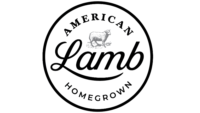Rapid development of utility-scale solar farms across the country has stimulated significant need for sheep grazing as a means of vegetation management. There are also increasing opportunities for sheep grazing contracts in wildfire-prone areas and vineyards. Sheep grazing helps to eliminate dried plants that might otherwise become wildfire fuel and grazing in vineyards, and in other areas helps clear weeds while reducing or eliminating herbicide use.
These paid grazing contracts present opportunity for growth of the U.S. sheep flock, improving the availability and price competitiveness of American lamb and reducing greenhouse gas emissions through green-energy production and biological vegetation management. These grazing opportunities offer current and emerging sheep producers the opportunity to increase their profitability and grow flock numbers.
Training is needed to ensure sheep producers are prepared to take advantage of these grazing contract opportunities. “Improving the sustainability of the US sheep industry through profitable growth is a top priority of the American Lamb Board (ALB),” said ALB Chair Peter Camino. “ALB is committed to ensuring new and experienced shepherds receive education and resources to become successful contract grazers.”
ALB’s grazing workshops are designed to outline new and existing opportunities through targeted grazing across the U.S. including fire suppression, vineyards, and solar grazing.
Producers who attend will have an opportunity to learn about the in-depth process of using sheep to provide a grazing service. From animal performance to contracts and business setup, the goal is to provide grazers with the tools to be successful service providers and profitable shepherds.
The three grazing workshops in 2024 will be in:
- Temple, Texas, May 8-10.
- Roxboro, N.C., May 20-22.
- California, summer.
Attendance is limited to 50 producers per workshop, and registration costs $200. For more information and to register, contact Camren Maierle at Camren@americanlamb.com.
Source: American Lamb Board


Report Abusive Comment